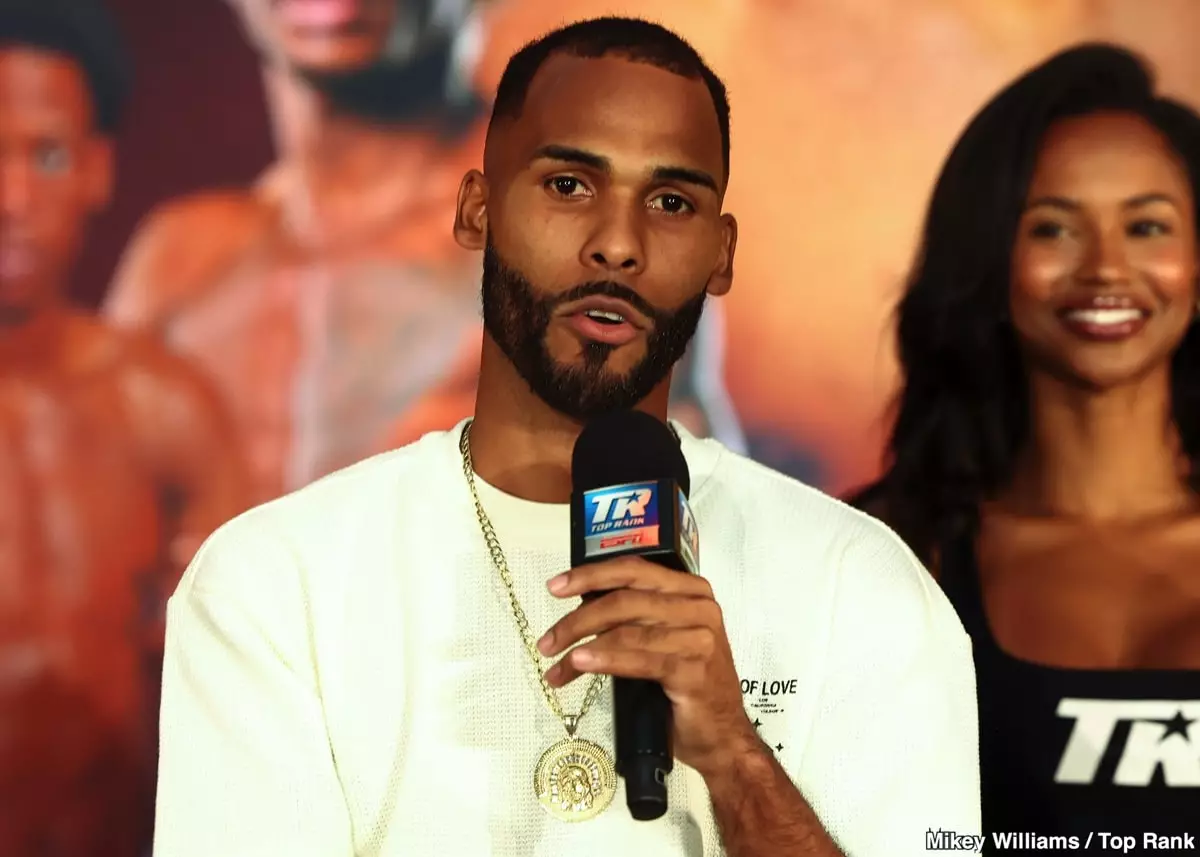The world of professional boxing is no stranger to stories of missed weight and subsequent controversies, but the recent drama surrounding former WBO lightweight champion Keyshawn Davis adds a new layer of complexity. Despite his exceptional skills inside the ring, Davis’s failure to make weight before his highly anticipated fight against Edwin De Los Santos raised significant eyebrows. By coming in at over four pounds heavy, Davis not only jeopardized his reputation but also obliterated the chances of his opponent, who was eagerly preparing for the fight of his life.
Davis’s inability to meet the weight requirements, a clear indication of either poor preparation or a lack of discipline, exposes a troubling aspect of boxing that often remains obscured: the health and safety of the fighters. To step into the ring against an opponent who is markedly heavier—a staggering potential difference of nearly 20 pounds—could have had dire consequences. The incident spotlights the larger issue of weigh-ins and how they can dramatically shift the dynamics of a match. By permitting an unstable weight gap, boxing regulators and promoters must grapple with the ethical implications of fighter safety versus the draw of financial profit.
The Price of Ambition: De Los Santos’s Dilemma
Edwin De Los Santos found himself in a precarious situation as a result of Davis’s mismanagement. Despite a burning desire to claim the WBO title, De Los Santos faced the frustrating reality of being sidelined due to safety concerns raised by his promoter, Sampson Lewkowicz. His willingness to get into the ring against Davis, even after knowing he would be severely outmatched, underscores a warrior mentality that can often obscure the importance of self-preservation in boxing.
Lewkowicz, having prioritised the fighter’s safety over financial incentives, acted as a protective buffer, but the fallout has been dramatic. De Los Santos’s reported split from Lewkowicz following the fight debacle raises questions about the future of his career. Now, without a promoter and starkly inactive since his loss to Shakur Stevenson, he must navigate the treacherous waters of the boxing industry. It’s not merely about finding someone to promote him; it’s about rekindling a career that seems to hang in the balance of a single misstep.
A Lesson in Accountability and Ethics
This incident is an essential case study in boxing accountability, both for fighters and promoters. Davis’s actions pose critical questions regarding training discipline, weight management, and the ethics of fight promotion. As Lewkowicz pointed out, the financial implications of allowing De Los Santos in the ring with an over-weight opponent were exponentially less important than the prospect of serious injury. His assertion that Davis was a “cheater” resonates deeply within the sport, reflecting a broader frustration with fighters who do not adhere to the regimented training and discipline required for success.
The fight community must not only focus on the glory of competition but also enforce stringent policies that uphold fighters’ health and safety. Allowing fighters to enter the ring significantly out of their weight class is a ticking time bomb, and the repercussions of such practices can devastate careers and lives alike.
Where Do Fighters Go from Here?
As for De Los Santos, who expressed the desire for improved promotional support, the question remains: who will step up to fill the void left by Lewkowicz? The boxing landscape is a competitive one, and seeking a new promoter could prove to be a lengthy and arduous journey. The risk factors are significant, especially considering the negative press that surrounds fighters who have been embroiled in weight controversies.
As he reorients himself in search of new direction, De Los Santos needs to focus not only on securing a promoter but also on rebuilding his athletic image. Recognizing the severe stakes in his profession, he must commit to rigorous training and weight management to ensure he does not become the cautionary tale of boxing’s often tumultuous nightlife. The push for redemption is palpable, but it is a road fraught with challenges.
In this chaotic world of professional boxing, the stakes have never been higher. The weight of consequence is a heavy burden, reminding all involved of the essential balance between ambition and responsibility.

